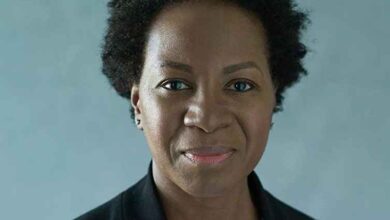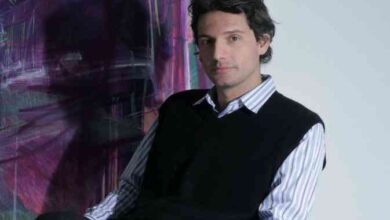Jacqueline Defferary: The Timeless Grace of a British Stage and Screen Icon

Jacqueline Defferary is a name that quietly resonates with those who appreciate British theatre and television at its finest. A versatile actress, she has journeyed through classical stage performances, screen dramas, and even corporate communication training — a testament to her multifaceted talent. Her poise, depth, and dedication to her craft have made her one of the most respected yet understated figures in the performing arts scene.
Early Life and Education
Born in Marylebone, London, in 1968, Jacqueline Defferary’s fascination with performance began early. Surrounded by London’s vibrant theatre culture, she developed a keen admiration for storytelling and character transformation. Her passion led her to the Royal Academy of Dramatic Art (RADA), one of the most prestigious acting schools in the world. Graduating in 1991, she emerged as part of a generation that would redefine British acting — disciplined, nuanced, and profoundly expressive.
Stage Career: The Foundation of Her Art
Defferary’s theatrical roots form the backbone of her artistic identity. Her early work with the Royal Shakespeare Company (RSC) and the National Theatre honed her classical skills, allowing her to interpret the subtleties of Shakespearean and modern texts with equal mastery.
Some of her most celebrated performances include The Comedy of Errors, The Rivals, Welcome to Thebes, and Push Up. Critics have praised her for her ability to bring emotional intelligence to complex roles, balancing grace with grit. Her portrayal of women navigating social, political, and personal conflict on stage has often been described as “eloquent and arrestingly authentic.”
Transition to Screen: Television and Film
While her heart remained in theatre, Jacqueline Defferary’s screen career introduced her to a global audience. Her first on-screen appearance came in 1992 in The Ruth Rendell Mysteries: Kissing the Gunner’s Daughter. This performance established her as a performer capable of bringing psychological realism to television drama.
She later appeared in several popular British television series such as The Bill, Mr Bean, The Thin Blue Line, and Father Brown. Each role — whether comedic or dramatic — showcased her adaptability and depth. In The Bill, she embodied believable, everyday humanity; in Mr Bean, she displayed timing and subtle humour.
Her film credits further demonstrate her range. Notably, in Cor, Blimey! (2000), she portrayed “Sally,” a role that balanced light comedy with emotional realism. Later, in Red Mercury (2005) and I’ll Sleep When I’m Dead, she explored darker, more introspective territory, revealing a performer equally at ease in tragedy and satire.
Distinctive Acting Style
Jacqueline Defferary’s acting is often characterised by understated precision. Rather than theatrical excess, she employs quiet control — her eyes, voice modulation, and physical stillness carry as much weight as grand gestures. Directors who have worked with her often commend her for being both collaborative and instinctive, a combination that makes her a favourite in ensemble productions.
Her performances frequently embody moral strength or inner conflict. Whether she is playing a conflicted mother, a resilient wife, or a historical figure, she carries an emotional transparency that resonates with audiences long after the curtain falls.
Contributions Beyond Performance
In addition to her acting, Jacqueline Defferary has made remarkable contributions as an educator and consultant. She co-founded Dramatic Skills in 2003 — a company dedicated to enhancing communication, presentation, and leadership through theatre techniques. Her experience on stage naturally translated into the corporate world, where she now coaches executives, educators, and students in authentic public speaking and storytelling.
She has also collaborated with Shakespeare’s Globe Education, designing and leading workshops that help participants connect with Shakespearean language and stagecraft. This work bridges classical training and modern communication, reinforcing her belief that drama can transform not just actors but anyone seeking confidence and clarity.
Personal Life
Jacqueline Defferary is married to actor Alasdair Craig, and the couple shares a deep connection rooted in the performing arts. Their partnership represents not only a personal bond but also a professional kinship — two artists who understand the rhythms of stage life, long rehearsals, and the pursuit of authenticity.
While she has kept her private life largely out of the media spotlight, colleagues describe her as thoughtful, humble, and deeply committed to her work. Her rare blend of artistic discipline and empathy makes her an influential figure both on and off stage.
Influence and Legacy
Few actors manage to maintain consistent integrity across decades of evolving entertainment trends. Jacqueline Defferary has done so quietly but powerfully. She belongs to that class of British performers who prioritise substance over celebrity — individuals whose contributions often ripple beneath the surface but are vital to the fabric of the industry.
Her influence extends beyond performance; her teaching and consulting work have empowered hundreds of individuals to communicate more confidently. Many of her trainees have gone on to describe her sessions as “transformative,” crediting her ability to draw out authenticity and emotional presence.
Recognition and Appreciation
Although she may not headline tabloids or dominate social media, Defferary’s reputation in professional circles is one of profound respect. Directors admire her reliability and range. Audiences recall her presence with fondness. Critics often note her “effortless humanity” — a quality that makes her characters believable and relatable.
Her body of work reflects the golden thread that connects the great British acting tradition — a commitment to storytelling, emotional truth, and lifelong learning.
The Modern Era: Continuing Relevance
In an age dominated by instant fame and digital exposure, Jacqueline Defferary represents the quiet endurance of classical artistry. She continues to appear in theatre and screen projects that align with her values — meaningful narratives that explore human depth rather than mere spectacle.
Her continued involvement in drama education ensures her influence on the next generation of actors remains strong. By helping young performers understand the connection between physicality, language, and emotion, she preserves the very essence of British theatre.
Lessons from Her Journey
Jacqueline Defferary’s journey offers timeless lessons for aspiring artists:
-
Mastery through Training: Her rigorous RADA education reminds performers that craft precedes fame.
-
Graceful Versatility: Transitioning between theatre and screen demands adaptability — a skill she has perfected.
-
Purpose Beyond Performance: Through Dramatic Skills, she proves that acting principles can empower professionals in all walks of life.
-
Integrity Over Popularity: Her quiet career path demonstrates that true success lies in authenticity and longevity.
The Power of Performance as Education
Perhaps the most inspiring aspect of Defferary’s career is how she transforms performance into education. By drawing from Shakespearean technique and contemporary expression, she bridges centuries of dramatic tradition. Her approach makes theatre relevant not just for actors but for teachers, business leaders, and communicators seeking to connect more deeply with their audiences.
She often emphasises the importance of presence — that moment-to-moment awareness that allows a speaker or actor to truly inhabit their space. This philosophy echoes her stage work, where presence, not performance, defines greatness.
The Enduring Appeal of a True Artist
Jacqueline Defferary may not seek the limelight, but her contribution endures through every performance, every workshop, and every student inspired by her. Her artistry lies not only in what she performs but in what she imparts: empathy, precision, and truth.
She stands as an example of how a career built on integrity, discipline, and continuous growth can outlast fleeting fame. In a world hungry for authenticity, she remains a quiet torchbearer of classical craft and modern relevance.
Conclusion
Jacqueline Defferary’s life and work form a portrait of resilience and refinement. From the stages of the Royal Shakespeare Company to television sets across Britain, she has built a legacy grounded in craft and compassion. Her journey illustrates that success is not always measured by fame but by the quality of one’s influence and the sincerity of one’s art.



